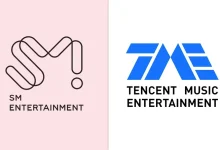SM Entertainment’s Strategic Handling of Controversial Members Signals Brand-Savvy Evolution

SM Entertainment is gaining attention for its distinct approach to managing controversies surrounding idol group members. Rather than fueling public uproar, the company has demonstrated a “big-picture” crisis management strategy that protects group and brand value while allowing individuals to reset their careers.
This approach came to the forefront again with the recent announcement of Seunghan’s solo debut and personal artist branding set for July. Seunghan had withdrawn from the group RIIZE prior to debut due to personal life controversies, sparking fierce backlash from fans. Eventually, SM confirmed his departure from the group.

The case mirrors that of Lucas, who faced similar scrutiny over personal issues during his time with NCT and WayV. He too stepped back from group activities before ultimately leaving the team.
What stands out is SM’s methodical crisis control: both instances involved a swift pause in activities, followed by an organized withdrawal from group membership. Meanwhile, the company kept the door open for the artists’ individual pursuits. This not only preserved the integrity of the group and its fandom, but also minimized damage to SM’s broader brand.
Rather than completely discarding members amid scandal, SM has opted for repositioning—transitioning the affected idols into solo ventures or personal branding initiatives. This avoids tarnishing the group’s image while maintaining business potential from the individual artist, a shrewd move for long-term brand sustainability.

Moreover, SM’s response has become more refined over time. The company now demonstrates a strong ability to monitor fan sentiment and market response, adjusting its actions accordingly. This indicates a maturing internal protocol that can serve it well in future controversies.
In today’s fast-moving entertainment landscape, controversies are sometimes inevitable. But SM Entertainment’s strategy emphasizes what really counts: how a company responds, restructures, and regains trust. Their evolving playbook is fast becoming a case study in crisis management within K-pop.



